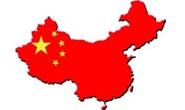Government/Policy

October 30, 2017
Commerce: China's Still a Non-market Economy
Written by Sandy Williams
Market economy status for China is out of the question, according to a 205-page memo from the Commerce Department.
The detailed memorandum, published on Oct. 26, was released just days before President Trump is to meet with Chinese President Xi Jinping and in close timing with a preliminary AD/CVD determination against China regarding imports of aluminum foil.
China joined the World Trade Organization in December 2001 under a stipulation that it would be temporarily treated as a non-market economy (NME), allowing other WTO members to subject it to stringent treatment in calculating antidumping duties. The expiration date for that ruling passed on Dec. 22, 2016, and China continues to struggle for market economy recognition and the potential relief it would provide from an onslaught of dumping and countervailing duties that have been levied against its exports.
The memo from Commerce lists six U.S. criteria that China fails to meet in its bid to become a market economy.
-
Commerce maintains that although China has made strides to become “market-oriented,” it still has “significant restrictions on capital account transactions” and intervenes “considerably” in onshore and offshore FOREX markets.
-
China controls wage rates, prohibits independent trade unions and strikes, and limits the mobility of its labor force.
-
China continues to impose significant barriers to foreign investment.
-
State-invested enterprises (state-owned) continue to be prevalent throughout China’s economy, subverting normal market principles of supply and demand.
-
The Chinese government controls resource allocation and pricing, employing various mechanisms to influence economic outcomes.
-
China’s legal system functions as an “instrument by which the Chinese government and the CCP can secure discrete economic outcomes, channel broader economic policy, and pursue industrial policy goals.”
“China’s institutional structure and the control the Chinese government and the CCP exercise through that structure result in fundamental economic distortions, such that non-market conditions prevail in the operation of China’s economy,” states the memorandum.
The non-market conditions are “deeply entrenched” within the Chinese government and are built on a legal mandate “to maintain a leading role for the state sector” wrote Commerce.
“Accordingly, China is a NME country. It does not operate sufficiently on market principles to permit the use of Chinese prices and costs for purposes of the Commerce Department’s antidumping analysis.”







